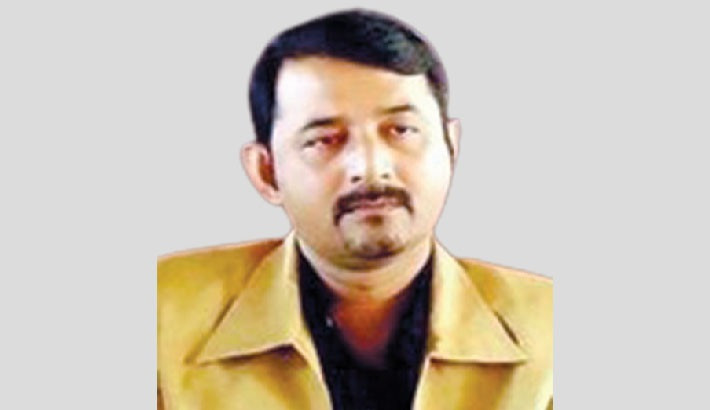Dialogue and Reforms
Trust in Interim Government Is Instrumental
Dr. Amanur Aman
Published: 03 Sep 2024

After holding a dialogue with the head of the interim government Dr. Muhammad Yunus, leaders of different political parties recently expressed their opinions that there is no necessity of mad rush for holding the national election. Rather, it is a time to reform (the vital sectors of the country). After the reforms, elections can be held at an appropriate time. Although different parties raised different demands during the meeting, there was no discussion about the election timeline. According to different media reports, the Chief Adviser himself called for unity among the political parties. He did not say anything about the election date. Rather, he posed the question of whether reforms should come first or the elections. As per the constitution, the election of the national parliament should be held within 90 days after the dissolution of the parliament. The concept of ‘obligation’ seems to be null and void in the present context.
After three days of the fall of the Awami League-led government, the interim government’s Advisory Council headed by Muhammad Yunus took over the charge on 8 August. So, this is, indeed, a very short period of time for the government. Now, we can see some statements coming from various political parties after the dialogue from which we can gain some insight into the current state of the country and its probable future transitions.
On 28 August, Mirza Fakhrul Islam Alamgir, the Secretary General of the BNP, referred to the experiences of the army-backed caretaker government led by Fakhruddin Ahmed in 2007, popularly known as the 'One-Eleven' government. Fakhrul suggested that the interim government should hold dialogues with political parties. The very next day, a meeting was held between the Chief Advisor and the BNP leaders including Mirza Fakhrul.
During the discussion, BNP leaders urged for immediate reforms in the Election Commission, law enforcement agencies, the judiciary, and other relevant institutions to ensure a free and fair election in the country. They also called for the announcement of a 'roadmap' for the upcoming national elections. In absence of Awami League, BNP is currently another major political party in the country. So, it is very significant whether the aspirations of the people are reflected through the party or not. If we analyse, we will see that all the other parties expressed almost the same opinion regarding the reforms and elections. Hence, a free, fair and transparent vote is very instrumental here.
Meanwhile, the Jatiya Party has called for a balance of the powers of the President and the Prime Minister. It talks about proportional representation in the Parliament. The party's demand that the leader of the parliament should not be the prime minister, the party said that no one should be the prime minister more than twice consecutively. Another important issue raised by the party is holding elections after necessary reforms. It supports taking the time needed to carry out these reforms. Besides, Gono Forum has put forward 20 demands. Mentionable among these are balancing the powers of the President and the Prime Minister and reinstating the caretaker government system.
The Islamic parties have also proposed that no individual should hold the office of prime minister for more than two terms. They have called for conducting necessary reforms within a reasonable time frame before holding the election. Additionally, these parties have demanded constitutional reforms, arguing that the absolute power granted to the prime minister by the current constitution leads to autocracy. Thus, it has advocated for decentralisation of powers to create a balance.
Islami Andolon has demanded that the interim government has to clarify quickly the nature and process of its reform activities and provide a timeline within which it will complete the reforms and announce a roadmap for the elections.
In the meantime, it was informed in the briefing organised by the Chief Adviser's press wing, that the Chief Adviser will soon present that outline to the nation. It was said that the Chief Advisor will primarily provide a framework for the reforms, which will also include the timeline and how the power will be transferred.
No matter what is being said about the reforms, the fog is not going away regarding the issue. Despite all the discussions, the issue still remains shrouded in uncertainty and will not be resolved easily. This is not a simple matter. When talking about state reform, what does it actually mean? As a state, Bangladesh has also passed 53 years since its establishment. During this time, its development and extent has also happened a lot. Various structures have been developed. Various rules and regulations have been made. Thus a political culture has developed. People have become accustomed to that culture in many ways. Therefore, how the term 'reform' will be interpreted and distributed is a significant question. Although it is unclear who holds the answer to this question, the entire issue remains confined to phrases like ‘logical reforms’ or ‘elections at a reasonable time.’
However, we think this is the best time. The political parties in the country have hardly agreed upon any issues before and it seems quite difficult for them to reach an agreement at this point. Therefore, they can put their trust in the interim government regarding this matter. Let the reforms continue. Let the dialogue continue as well. Let the people regain their trust.
__________________________
The writer is a researcher

